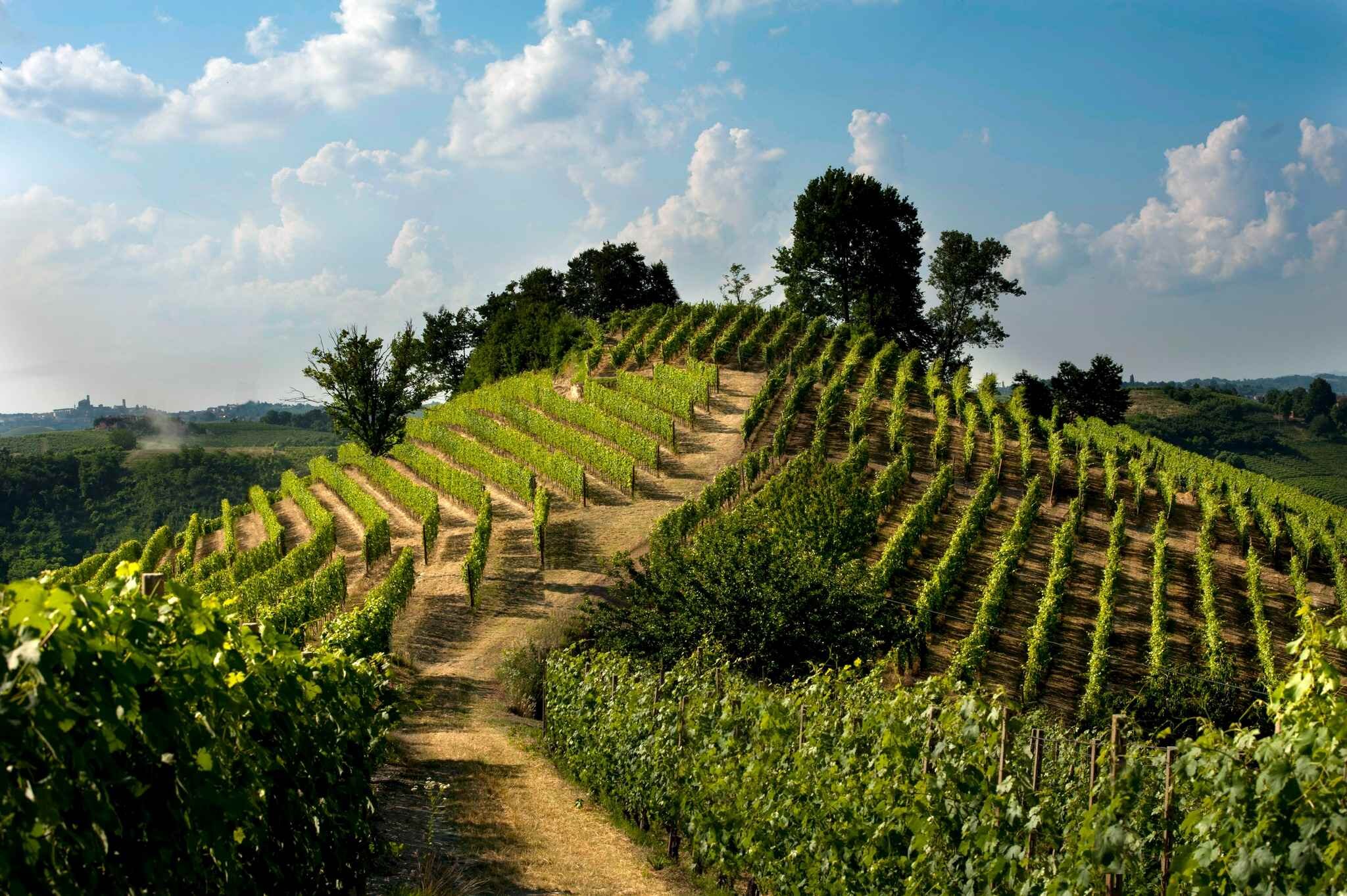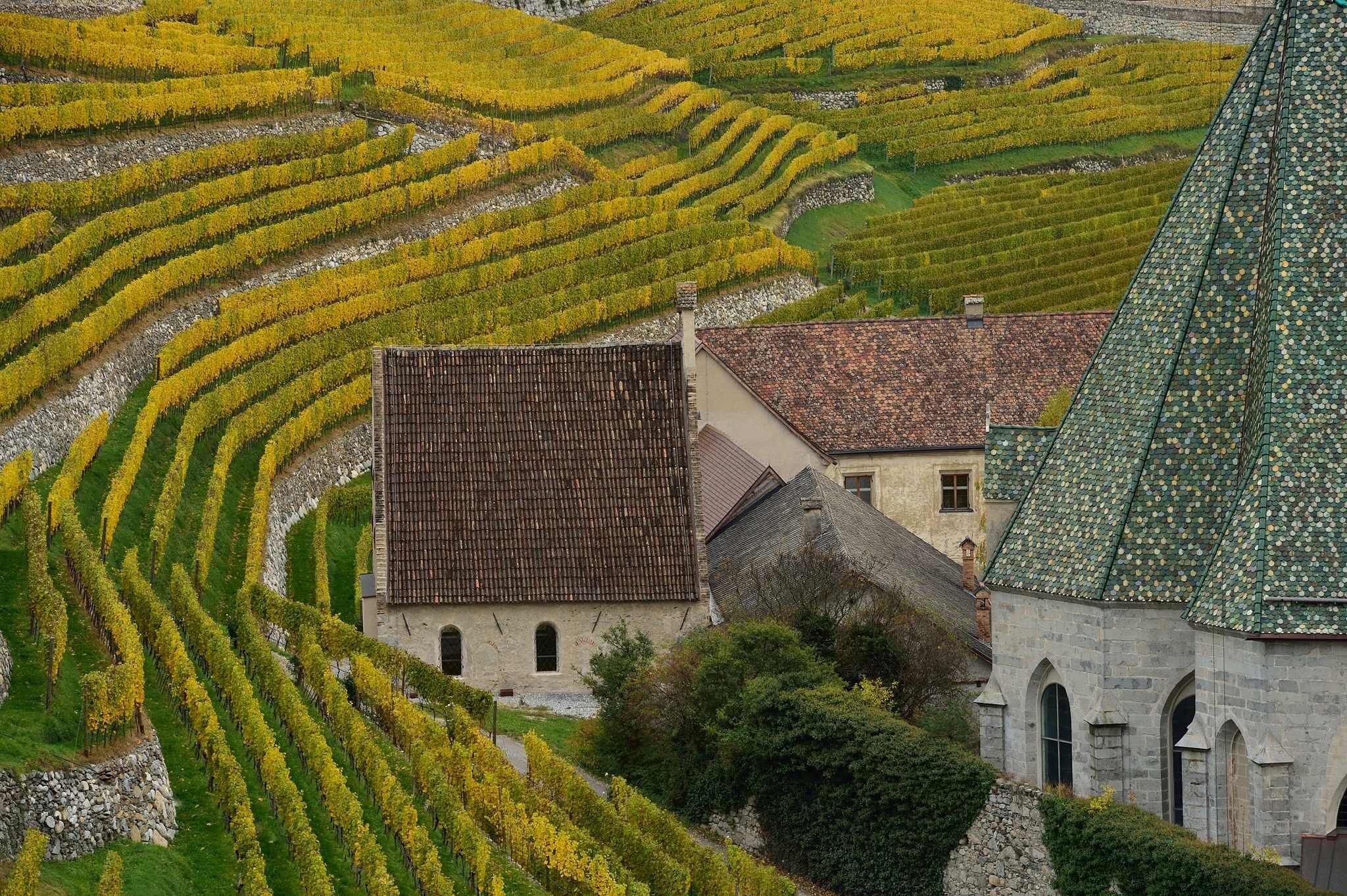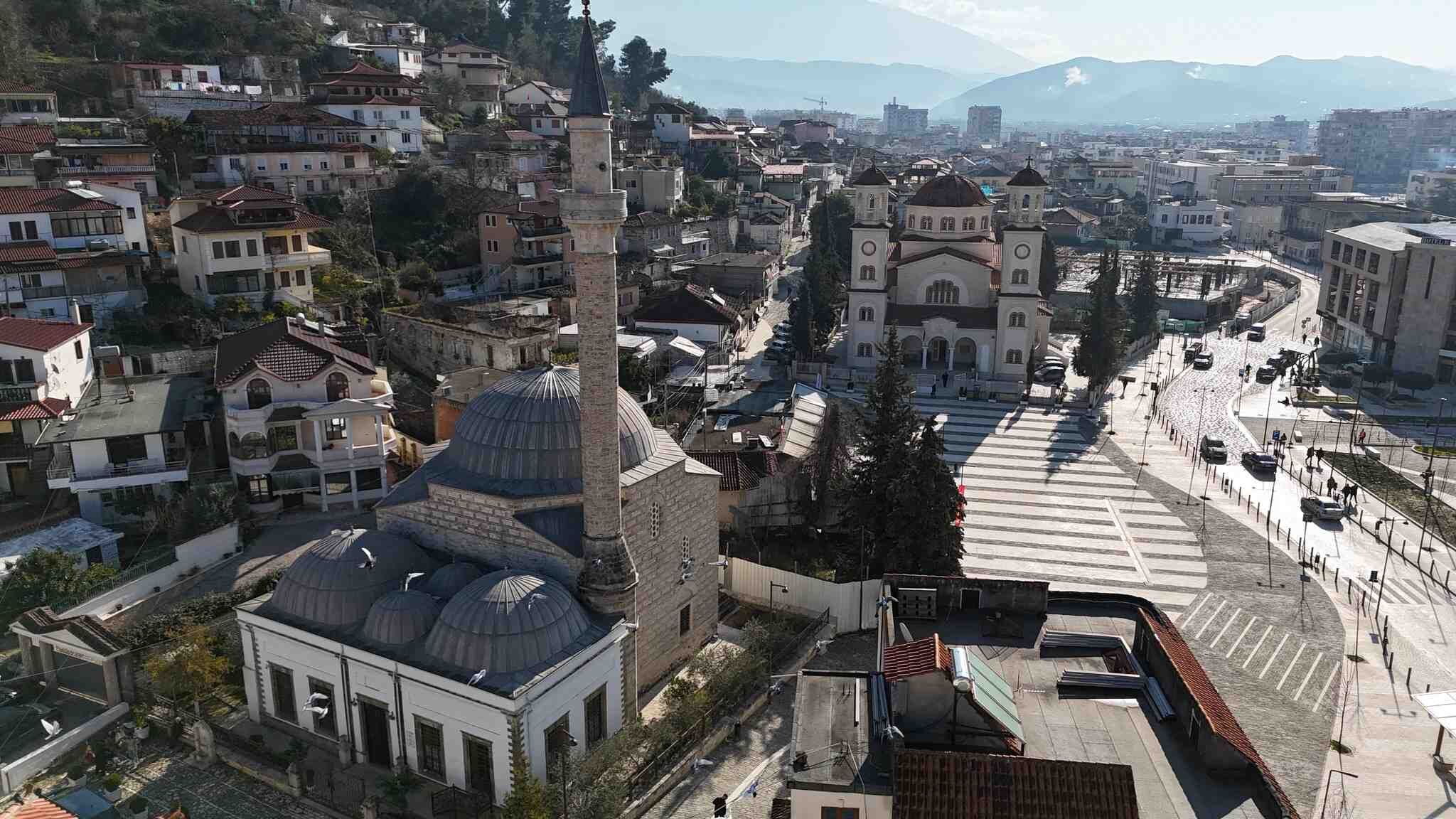
Ci sono luoghi che non si spiegano: ci arrivi e ti entrano nell’anima, dritti come una lama. Angoli di mondo dove la natura sembra parlare una lingua dimenticata, e il paesaggio – più che mostrarsi – si rivela, lento, profondo, necessario. Serra Ferdinandea nasce in uno di questi luoghi, sulle colline tra Sciacca e Sambuca di Sicilia, a pochi chilometri dal mare, di fronte a un orizzonte dove aleggia ancora il ricordo dell’Isola Ferdinandea. Un’isola fantasma, emersa nel 1831 per scomparire dopo poche settimane, lasciando una scia di mistero capace di affascinare scrittori e geologi, narratori e viaggiatori. È su questa terra intatta da secoli – mai toccata da agricoltura intensiva, pascolata e levigata dal vento – che prende forma un progetto agricolo tra i più visionari del panorama italiano. Serra Ferdinandea non è soltanto un’azienda agricola, ma un organismo vivo e polifonico, che intreccia la produzione del vino con la rigenerazione del paesaggio, il sapere contadino alla consapevolezza ecologica, il gesto agricolo alla ricerca di un’armonia profonda tra uomo e natura. Fondata nel 2019 dalla collaborazione tra le famiglie Planeta e Oddo, Serra Ferdinandea è una realtà biodinamica dove ogni scelta è frutto di ascolto. Il suolo, la luce, il silenzio: tutto viene rispettato, osservato, valorizzato. Non si coltiva per dominare, ma per nutrire: la terra, chi la lavora, chi la abita. I 110 ettari dell’azienda si distendono tra boschi, prati, vigne, campi di grano Perciasacchi, fichi, ceci Sultano e arnie di api nere sicule. Un paesaggio agricolo che assomiglia a un ecosistema autosufficiente, pensato per offrire, come un’antica tavola mediterranea, tutti i nutrienti necessari per vivere in equilibrio. L’agricoltura qui è gesto etico e culturale, ma anche atto spirituale: lavorare la terra significa entrare in relazione con le sue energie sottili, lasciarsi attraversare dalla sua forza primigenia. I vigneti, 17 ettari coltivati tra i 400 e i 500 metri di altitudine, accolgono varietà autoctone e alloctone – Grillo, Nero d’Avola, Syrah, Sauvignon Blanc – che dialogano tra loro in un equilibrio mai forzato. I vini, Sicilia DOC, sono espressione di questa armonia: non cercano di stupire, ma di raccontare. Sono vini in cui la mineralità delle antiche rocce marine si unisce alla freschezza dei venti collinari e all’intensità del sole meridiano. Ma Serra Ferdinandea è molto più di vino. È pasta, farine, legumi, miele. È una visione agricola che include il cibo come atto nutriente, come relazione tra corpo e territorio. È anche una cantina urbana, a Menfi, che si fa spazio sociale e culturale, punto d’incontro e di sperimentazione, esempio di architettura artigianale e rigenerata. A guidare il progetto è un team under 40, competente e appassionato, formato dall’agronomo Giacomo Marrone, dall’enologo Calogero Riportella e coordinato dalla magnetica Cecilia Carbone, classe 1994, genovese d’origine e siciliana d’adozione. Presenza vitale e carismatica, in piena sintonia con le energie del luogo, Cecilia ha scelto di lasciare la città e una carriera già avviata tra musica, finanza e lingue orientali, per seguire un’intuizione profonda: che il futuro si coltiva con le mani nella terra. La sua è una scelta radicale e contemporanea, maturata in un percorso fatto di esplorazioni culturali e spirituali, che l’ha condotta a vivere in campagna, in un luogo dove la biodiversità non è solo ambientale ma anche umana. Convinta che il vero cambiamento passi dalla terra, e non dalla città, si trasferisce in Sicilia, dove entra nel progetto Serra Ferdinandea, che oggi custodisce e coordina con passione e visione. Il suo percorso, tra musica, lingue, città globali e scelte radicali, riflette un’idea profonda e concreta: riportare la campagna al centro del dibattito sociale, come luogo di produzione sostenibile ma anche di benessere umano. Serra Ferdinandea, oggi, è tutto questo. Ma soprattutto è un luogo che vibra. Chi ci cammina lo sente: qualcosa cambia nel respiro, nel passo, nella percezione del tempo. Forse è l’energia antica delle rocce, o la memoria sepolta dell’isola che fu. Forse è solo il silenzio, finalmente ascoltato. Ma qui, tra le “serre” siciliane e il profumo del mare, si riscopre un modo diverso di abitare il mondo: più attento, più lento, più vero. Il nome stesso dell’azienda nasce da una doppia ispirazione. Da un lato l’Isola Ferdinandea, con il suo fascino misterioso, dall’altro le “serre”, termine siciliano che indica le colline a forma di sella che si rincorrono in questa parte dell’entroterra. Risalendo dal mare, infatti, il paesaggio muta e si fa quasi montuoso: le creste si alternano ai prati, e le “serre” disegnano una geografia intima e selvaggia. Un luogo che si lascia scoprire a poco a poco, come una verità antica che continua a parlare nel tempo, sottovoce.
Journey to Serra Ferdinandea: Inner and Visionary Sicily
There are places that defy explanation: you arrive, and they cut straight to your soul like a blade. Corners of the world where nature seems to speak a forgotten language, and the landscape—rather than merely appearing—reveals itself slowly, deeply, necessarily. Serra Ferdinandea was born in one of these places, nestled in the hills between Sciacca and Sambuca di Sicilia, just a few kilometers from the sea, facing a horizon where the memory of the Ferdinandea Island still lingers. A phantom island, it surfaced in 1831 only to vanish weeks later, leaving behind a trail of mystery that continues to fascinate writers, geologists, storytellers, and travelers.
It is on this land—untouched for centuries, never subjected to intensive farming, grazed and shaped by the wind—that one of Italy’s most visionary agricultural projects has taken shape. Serra Ferdinandea is not just a farm, but a living, polyphonic organism, weaving together wine production with landscape regeneration, traditional knowledge with ecological awareness, agricultural work with the pursuit of a deep harmony between humans and nature.
Founded in 2019 through the collaboration of the Planeta and Oddo families, Serra Ferdinandea is a biodynamic farm where every decision stems from attentive listening. The soil, the light, the silence—everything is respected, observed, and honored. Cultivation here is not about domination, but about nurturing: the land, the people who work it, and those who inhabit it.
The 110 hectares of the estate stretch across woods, meadows, vineyards, fields of ancient Perciasacchi wheat, fig trees, Sultano chickpeas, and hives of native Sicilian black bees. This agricultural landscape resembles a self-sufficient ecosystem, designed to offer—like an ancient Mediterranean table—all the nutrients needed to live in balance. Agriculture here is an ethical and cultural gesture, but also a spiritual act: working the land means entering into a relationship with its subtle energies, allowing oneself to be moved by its primal force.
The vineyards—17 hectares planted between 400 and 500 meters above sea level—host both native and international varieties: Grillo, Nero d’Avola, Syrah, and Sauvignon Blanc, which interact in a natural, unforced harmony. The wines, certified Sicilia DOC, express this balance: they don’t aim to impress, but to tell a story. These are wines where the minerality of ancient marine rocks meets the freshness of hilltop breezes and the intensity of the southern sun.
But Serra Ferdinandea is much more than wine. It is pasta, flour, legumes, honey. It is an agricultural vision that embraces food as a nourishing act, a connection between body and territory. It is also an urban winery, located in Menfi, which doubles as a social and cultural space, a hub of experimentation, and an example of handcrafted and regenerated architecture.
Leading the project is a passionate and competent under-40 team, including agronomist Giacomo Marrone, oenologist Calogero Riportella, and the charismatic Cecilia Carbone. Born in 1994, originally from Genoa but Sicilian by choice, Cecilia is a vital and magnetic presence, perfectly attuned to the energy of the place. She left city life and a promising career in music, finance, and oriental languages to follow a deep intuition: that the future is cultivated with hands in the soil. Her choice is radical and contemporary, shaped by cultural and spiritual explorations that led her to live in the countryside, in a place where biodiversity is not only environmental but also human. Convinced that real change starts from the land—not the city—she moved to Sicily, where she now coordinates and nurtures the Serra Ferdinandea project with vision and passion. Her journey—bridging music, languages, global cities, and radical decisions—reflects a profound and concrete idea: bringing the countryside back to the center of social discourse, as a place of sustainable production and human well-being.
Today, Serra Ferdinandea is all of this. But above all, it is a place that vibrates. Those who walk through it can feel it: something changes in their breath, their step, their perception of time. Maybe it’s the ancient energy of the rocks, or the buried memory of the vanished island. Maybe it’s just the silence, finally heard. But here, among the Sicilian serre and the scent of the sea, one rediscovers a different way of inhabiting the world: more mindful, slower, truer.
The name Serra Ferdinandea itself draws from a double inspiration. On one hand, the mysterious Ferdinandea Island; on the other, the serre—a Sicilian term for the saddle-shaped hills that ripple across this part of the inland landscape. As you rise from the sea, the terrain changes and becomes almost mountainous: ridges alternate with meadows, and the serre trace an intimate and wild geography. A place that reveals itself slowly, like an ancient truth still speaking through time—softly, yet unmistakably.









